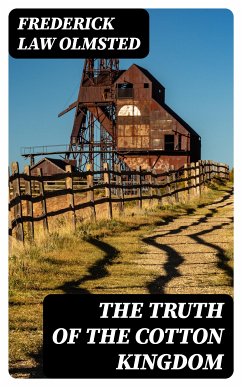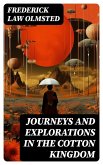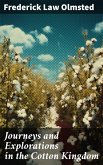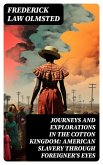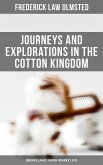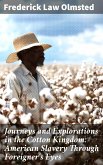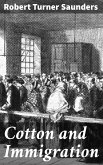In "The Truth of the Cotton Kingdom," Frederick Law Olmsted delves into the complex socio-economic realities of the antebellum Southern United States, providing an in-depth analysis of the cotton industry and its profound implications for American society. Employing a blend of poignant observations, journalistic prose, and stark realism, Olmsted critiques the romanticized notions of Southern life, illuminating the stark disparities and moral confliction inherent in the plantation economy. His meticulous fieldwork presents an empirical account of the local populace, agrarian practices, and the oppressive nature of slavery, making it an essential contribution to both literature and socio-economic discourse of the mid-19th century. An influential figure known primarily for his work as a landscape architect, Olmsted's foray into social criticism stems from his firsthand experiences during his travels in the South. His advocacy for social justice and his keen observations of the intricate interplay between environment and society significantly informed his beliefs about the essential moral contradictions posed by slavery and capitalism. These perspectives are crucial to understanding the context in which he wrote this seminal work. Readers seeking a nuanced understanding of America's historical landscape, particularly the implications of its cotton economy, will find "The Truth of the Cotton Kingdom" revealing and transformative. Olmsted's deft synthesis of journalism and social analysis invites exploration of themes that remain relevant today, making this book a vital read for students of history, sociology, and American literature alike.
Dieser Download kann aus rechtlichen Gründen nur mit Rechnungsadresse in A, B, BG, CY, CZ, D, DK, EW, E, FIN, F, GR, H, IRL, I, LT, L, LR, M, NL, PL, P, R, S, SLO, SK ausgeliefert werden.

